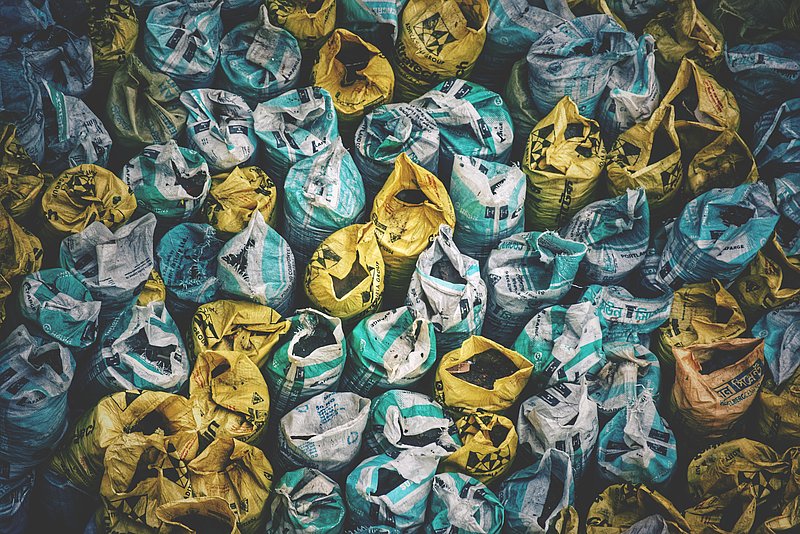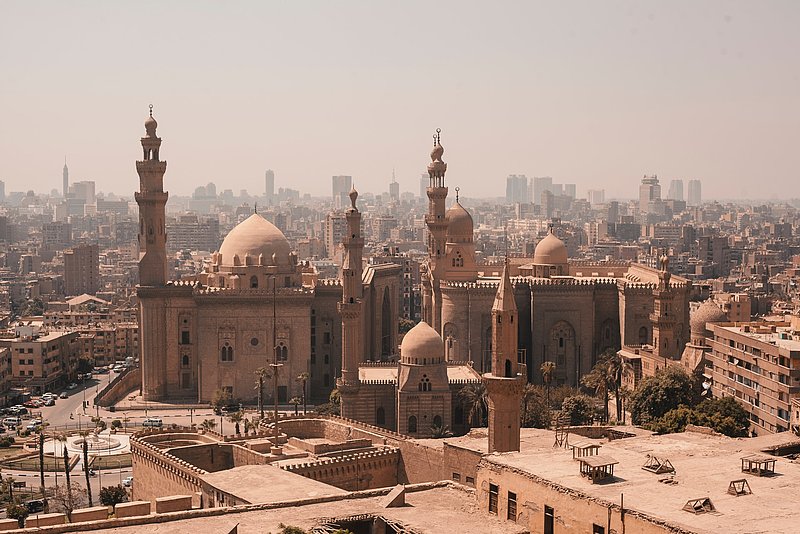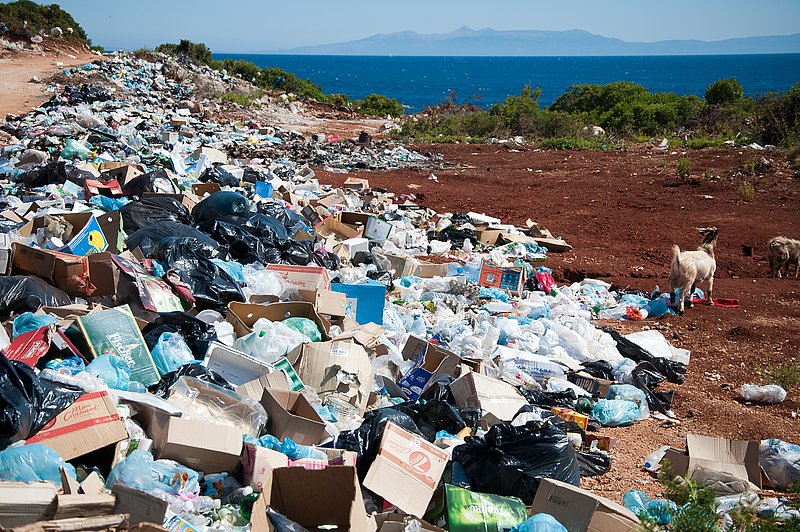There are eight garbage settlements in Cairo, one of the largest is Izbat an-Nakhl. The informal quarter on the outskirts of Cairo in the south has 8,000 inhabitants. Innumerable garbage bags are piled on the motorcycles, which occasionally drive through the narrow streets between the high facades. What at first glance looks like a huge garbage chaos is in reality an ingenious system with which the Zabbalin – as the garbage collectors in Cairo are called – earn money. For them garbage is like a second currency. They are the ones who go from door to door with donkeys and carts to pick up the household garbage even before it is collected. After sorting the garbage, they sell it on to dealers and recycling centres.
Hygiene Basis – What Does This Have to Do With Our Plastic Problem?
Cairo – the cultural centre of the Arab world. When you think of “the conqueror”, as Cairo is called in Arabic, images of majestic palaces or the nearby pyramids of Giza might come to mind. But only a few people think of what Cairo is still known for: its mountains of garbage, or better: its garbage city.
But the business with the garbage has its dangers. Pathogenes, poisonous substances and dangerous objects are found in the garbage that the residents are confronted with every day. And now the danger of the corona virus is added.
There are many quarters like those at the gates of Cairo in the world, especially in the big cities of poor countries. Everywhere the inhabitants hope that the corona virus will not harm them – after all, they have been dealing with pathogens for decades, which would have hardened them. But medicine knows – it is not that simple. They are exposed to the same dangers as the rest of the world – only with less protection. Face masks and gloves do not appeal to them, and people often feed on the organic waste.
From a Western perspective, the problem seems far away. But the trade in plastics and plastic waste has also become globalised in recent decades. Huge container ships bring our waste to Asia, for example. On average, an EU citizen produces 24 kilograms of plastic waste alone. While plastics make hygiene easier in industrialized countries, for example in hospitals, and protect our food from pathogens, it is precisely these plastics that cause diseases in poor countries.
Inadequate management of solid waste results in a problem that is particularly serious in such developing countries, among other things due to lack of hygiene. Recent studies have shown how important and urgent it is to address the impacts of solid waste management. This includes environmental, social and health impacts and focuses on developing countries and their workers, waste pickers and their families. It was observed, that waste pickers and their families suffer more frequently from diseases like osteomuscular disorders, bronchitis or respiratory issues, heavy metal contamination or intestinal worms. In addition, there is also a higher risk of infection with malaria because of waste lying around. Standing waters in scrap yards, containers or lying garbage, where rainwater collects, provide a good breeding ground for mosquitoes, which so often transmit deadly diseases to humans. According to the world health organisation, Malaria is among the five leading causes of death in under-5-5year old children in Africa.
Nobody knows how the situation will spread with the spread of the corona virus. “Of course we are afraid of corona,” says waste sorter Mustafa Mohamed in an interview with the German news agency Tagesschau. “We have no protection. But what do we have left? We can only trust in God.”
But people and governments in the industrialized countries could already do much more. Better waste management, where people no longer have to rummage through garbage with their bare hands and pile up waste in the wild, would deprive mosquitoes of their breeding ground and reduce the risk of infection. In this way, we can not only improve the quality of life of zabbalin and other waste collectors, but also contribute to the health of all other people, animals and our environment.
Photo Header: Radowan Nakif Rehan




